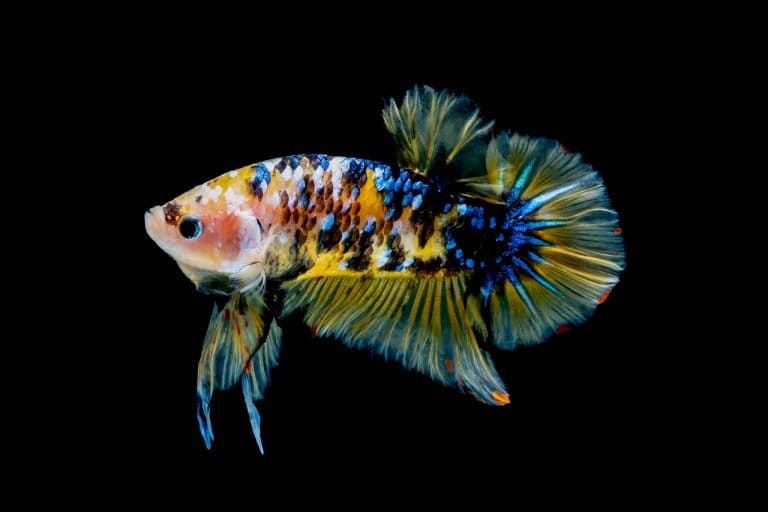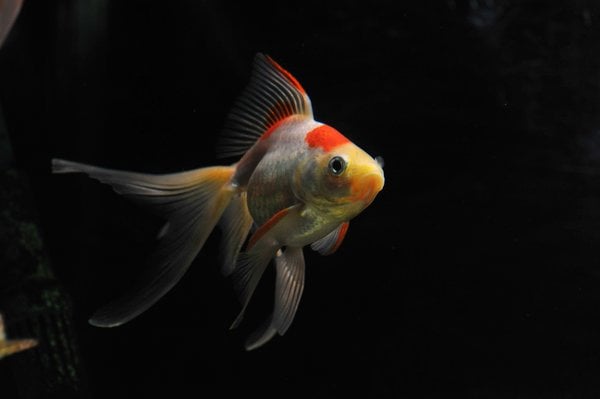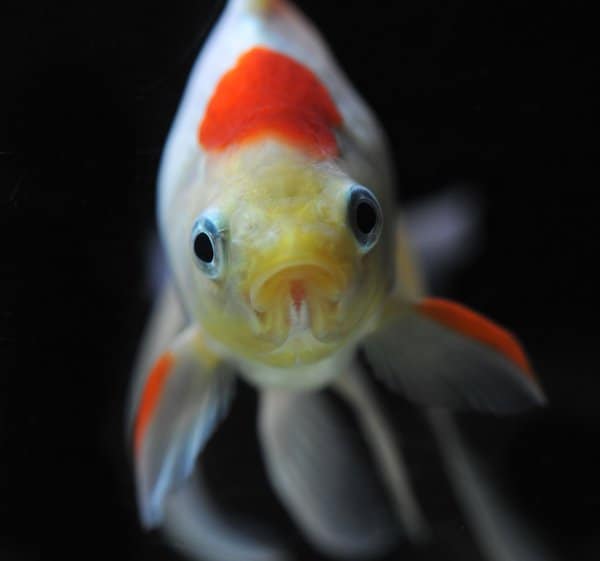Are you a goldfish owner who has noticed unusual white patches or fuzzy growth on your fish’s scales? If so, your goldfish may be suffering from a scale fungal infection. This rare but serious condition can pose a significant threat to your fish’s health. Fungal infections in goldfish can lead to severe damage to their scales, fins, and even internal organs if left untreated. However, with proper understanding and proactive steps, you can successfully prevent and treat these infections, ensuring a healthy and vibrant environment for your goldfish.
Key Takeaways:
- Improper Water Quality: Scale fungal infections in goldfish can be caused by poor water quality in the aquarium or pond. This includes high levels of ammonia, nitrites, or nitrates, as well as pH imbalances. It is crucial to regularly monitor and maintain water parameters to prevent fungal infections.
- Poor Nutrition: Goldfish that are not provided with a balanced and nutritious diet are more susceptible to scale fungal infections. Nutritional deficiencies weaken their immune system, making them susceptible to various diseases, including fungal infections. A well-balanced diet consisting of quality fish food is essential for preventing such infections.
- Stress and Weakened Immune System: Goldfish that are stressed due to overcrowding, poor tank conditions, or improper handling are more likely to develop scale fungal infections. Stress weakens their immune system, making them vulnerable to opportunistic fungal pathogens. Providing a stress-free and comfortable environment is essential for preventing fungal infections in goldfish.
Causes of Scale Fungal Infections in Goldfish
Overview of Causes
Any goldfish owner knows how disheartening it can be to discover their beloved fish suffering from a scale fungal infection. To effectively treat and prevent these infections, it’s crucial to understand their causes. Scale fungal infections in goldfish are usually caused by poor water quality and compromised immune systems. When your goldfish is exposed to unsanitary conditions, it becomes more susceptible to fungal infections. Additionally, if your goldfish’s immune system is weakened due to stress or other health issues, it becomes less capable of fighting off fungal pathogens.
Explication of Specific Causes
When it comes to specific causes of scale fungal infections in goldfish, environmental factors play a significant role. Poor water quality, including high ammonia or nitrate levels, low oxygen levels, and improper pH levels, creates the ideal breeding ground for fungi. Overcrowding in the fish tank can also contribute to water quality issues, making your goldfish more prone to infections. Therefore, it is vital to regularly test and maintain appropriate water conditions in order to minimize the risk of fungal infection.
Moreover, certain habits and practices may inadvertently introduce fungal pathogens to your goldfish tank. Feeding live or frozen foods can introduce fungal spores if the food is not properly handled or stored. Similarly, adding new fish or decorations without quarantine or sterilization can introduce fungal spores into the tank. It is essential to maintain proper hygiene and quarantine new additions to prevent the spread of fungal infections to your existing goldfish.
By understanding the causes of scale fungal infections in goldfish, you can take proactive measures to prevent them and ensure the well-being of your aquatic companions. Remember, maintaining clean water conditions, providing a stress-free environment, and practicing good hygiene are critical in keeping fungal pathogens at bay.
Impacts of Fungal Infections on Goldfish Scales
Any goldfish owner’s top concern should be the well-being of their beloved aquatic pets. When it comes to fungal infections on goldfish scales, the impacts can be significant. Not only do these infections pose a threat to the appearance and comfort of your goldfish, but they can also lead to expanded health risks that should not be taken lightly.
Damage to Appearance and Comfort of Goldfish
Nothing is more dazzling than a goldfish with healthy, vibrant scales. However, when your goldfish succumbs to a fungal infection, its scales can become affected, leading to a noticeable decline in appearance. The once-glossy scales may appear faded, discolored, or even develop unusual patches. This can detract from the overall beauty of your goldfish, causing frustration and concern.
Furthermore, fungal infections can also impact the comfort of your goldfish. As the infection progresses, your goldfish may experience itchiness and irritation. The fungus can cause the scales to become damaged, leading to discomfort and potential pain for your aquatic companion. It is essential to address these infections promptly to alleviate any discomfort your goldfish may be experiencing.
Expanded Health Risks
While the appearance and comfort aspects are distressing, the health risks associated with fungal infections on goldfish scales are of utmost concern. A neglected fungal infection can weaken your goldfish’s immune system, making it more susceptible to other diseases and infections. The compromised defense mechanisms can pave the way for bacterial infections or even more severe fungal infections that can quickly spread to other parts of the fish’s body.
Moreover, the spread of fungal infections can also lead to secondary complications such as fin rot or even systemic infections. These conditions can cause a significant decline in your goldfish’s overall health and well-being. If left untreated, they can become life-threatening, jeopardizing the longevity of your aquatic companion.
It is crucial to understand that fungal infections on goldfish scales are not merely an aesthetic concern. They can have far-reaching consequences, impacting both the appearance and comfort of your goldfish, as well as increasing the risk of other health issues. Therefore, taking immediate action and seeking proper treatment for these infections is essential to ensure the long-term health and happiness of your goldfish.
Prevention and Treatment of Scale Fungal Infections
The prevention and treatment of scale fungal infections are crucial aspects of ensuring the overall health and well-being of your goldfish. By taking proactive measures to prevent these infections and seeking prompt treatment if they occur, you can significantly reduce the risk of complications and enhance the longevity of your beloved fish. In this chapter, we will explore the methods of preventing fungal scale infections and recommended treatment options for infected goldfish.
Methods of Preventing Fungal Scale Infections
The prevention of fungal scale infections starts with maintaining a clean and well-balanced aquatic environment for your goldfish. Here are some essential methods to incorporate into your care routine to keep your goldfish protected:
1. Maintain Water Quality: You must regularly test and monitor the water parameters of your goldfish tank. Ensure the pH, ammonia, nitrite, and nitrate levels are within the appropriate range. Poor water quality can stress your goldfish, weakening their immune system, and making them more susceptible to infections.
2. Proper Filtration and Regular Water Changes: Invest in a high-quality filtration system that suits the size of your tank. A good filter helps to remove waste, debris, and excess nutrients from the water, preventing the growth of harmful bacteria and fungi. Additionally, regular partial water changes are essential to maintain optimal water quality and dilute any potential pathogens.
3. Avoid Overcrowding: Adequate space is crucial for the well-being of your goldfish. Overcrowding not only leads to increased waste production but also heightens the risk of fungal infections. Ensure each goldfish has enough room to swim comfortably without feeling cramped.
4. Quarantine New Fish: Whenever introducing a new fish to your existing tank, it is imperative to quarantine them for a period of time. This allows you to observe the new fish for any signs of infection before introducing them to your other goldfish. Prevention is always better than having to deal with a full-blown outbreak.
Recommended Treatment Options for Infected Goldfish
If your goldfish unfortunately develops a scale fungal infection, immediate treatment is necessary to prevent further progression and alleviate their discomfort. Here are some recommended treatment options:
1. Medications: Consult with a veterinarian or aquatic specialist to identify the appropriate antifungal medications for your goldfish. Follow the prescribed dosage and treatment duration strictly, as instructed. Medications can effectively target and eliminate fungal infections, giving your goldfish the best chance at recovery.
2. Salt Baths: Salt baths can be a beneficial treatment for fungal infections in goldfish. Dilute non-iodized salt in a separate container and allow your goldfish to soak in it for a short period. This method aids in reducing the fungal growth and relieving any irritation your goldfish may be experiencing. However, please consult with an expert to ensure the correct dosage and duration for your specific situation.
3. Improve Water Quality: Maintaining pristine water quality throughout the treatment process is essential. Regular water changes and careful monitoring of water parameters will prevent the infection from spreading and support your goldfish’s immune system in fighting off the fungus.
By implementing these preventive methods and promptly seeking appropriate treatment, you can effectively safeguard your goldfish from the detrimental effects of scale fungal infections. Remember, the health of your goldfish relies on your proactive care and attention to detail, ensuring a safe and happy aquatic environment to thrive in.
Conclusion
Now you know the various factors that can cause scale fungal infections in goldfish. Maintaining a clean and balanced aquarium environment is essential to prevent the growth and spread of fungal infections. Regular water changes, proper filtration, and keeping the water parameters within the recommended range can greatly reduce the risk of fungal outbreaks. Additionally, providing appropriate nutrition and ensuring that your goldfish have a stress-free living space will also contribute to their overall health and resilience against fungal infections. By implementing these measures, you can help protect your goldfish from scale fungal infections and ensure their well-being for years to come.





